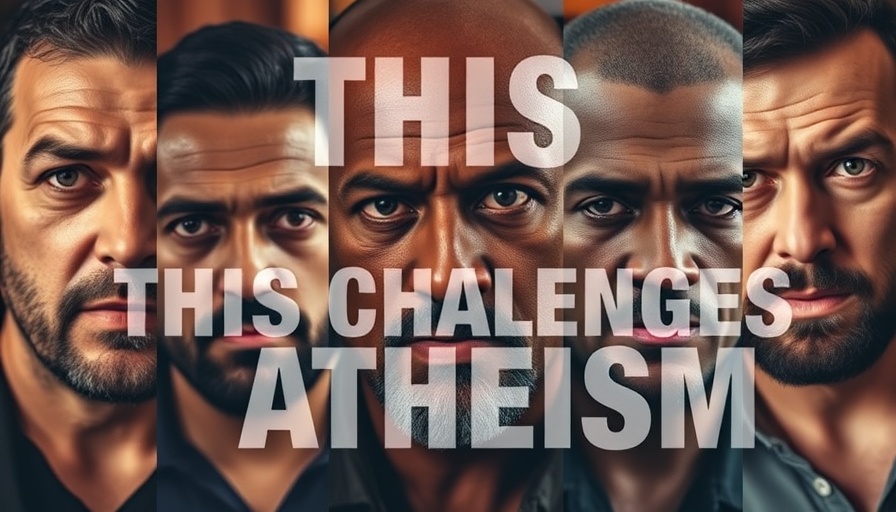
The Surprising Encounters of Atheists: Visions Beyond Expectations
There are narratives deeply interwoven into the fabric of life, often igniting curiosity and speculation among believers and skeptics alike. The topic of atheists experiencing visions, especially during near-death experiences and deathbed encounters, was placed under a fascinating microscope in the recent discussion, "When Atheists Have Visions: 9 Surprising Encounters." Here, we explore the implications of these occurrences and the reactions they evoke from those who embody both faith and skepticism.
In "When Atheists Have Visions: 9 Surprising Encounters," the discussion douses into the intriguing phenomenon of atheists reporting visions, and we’re delving deeper into the implications of these experiences.
Defining Visions
In understanding why and how atheists report profound experiences akin to visions, it is essential to clarify what we mean by 'visions.' The term encompasses a variety of experiences, including near-death experiences, where individuals reportedly return from clinical death with vivid accounts of what they encountered. Deathbed visions often involve profound encounters during the final moments of life, marking the crossing from this world into the unknown. This diverse spectrum of visionary experiences leaves profound impressions, often challenging pre-existing worldviews.
The Unexpected Nature of Visions
Why would an atheist, who typically operates under a naturalistic worldview, report a vision that seems to defy their beliefs? Current studies reveal that these experiences occur irrespective of one's background, suggesting that visions transcend mere expectation. Often, individuals who identify as atheists profess to have no anticipation of an afterlife or spiritual phenomena. Yet, when faced with the unexpected, such as a life-threatening situation, many recount experiences filled with love, purpose, and transformation.
Noteworthy Encounters and Their Impact
Several prominent atheists have shared their experiences, demonstrating the shift in perspective that can occur when confronted with a profound vision.
Take Bertrand Russell, for example, one of the most influential atheists of the 20th century. After a harrowing personal experience, he reported a vision that left him altered—pondering themes of love and compassion that previously seemed irrelevant to him. His experience pushed him toward deep introspection, challenging his prior assertions about materialism and the nature of existence.
The Psychological and Spiritual Analysis
These transformative occurrences raise critical questions regarding the intersection of psychology, spirituality, and human experience. Skeptic Michael Shermer, once heavily bound to rationalism, documented an encounter that defied easy explanation. While indulging in his skepticism, he acknowledged an event involving his late grandmother's radio. The perfectly timed and sentimental music emerging from a broken device led him to contemplate a reality beyond the physical realm. Such experiences challenge rigid categories of belief and open doors toward exploring personal spirituality.
Understanding the Universal Quest for Meaning
Aligned with Steve Miller's arguments in the discussion, these phenomena illustrate a universal quest for meaning. The stories of atheists transitioning into seekers, whether through experiences with deathbed visions or through interpreting the realities others have faced, highlight a significant truth—everyone grapples with the inexplicable aspects of life. Profound encounters compel individuals to search for answers, regardless of their prior convictions. Thus, we realize that despite our different belief systems, the yearning for understanding, connection, and truth is inherently human.
Encouragement for the Journey
As we reflect on these insightful encounters, we encourage readers—whether skeptics, believers, or somewhere in between—to share their visions and experiences. Whether you had a transformative encounter or engaged in a thoughtful grappling with your beliefs, your story could inspire others on their journeys. For those still seeking answers, know that exploration itself is a critical step in discovering truth.
Faith By Experience
Ultimately, individuals like Matthew Perry and Michael Edgar show us that life's meaning often emerges from troubled waters. Through heart-wrenching encounters, both found themselves pondering life's deeper significance beyond momentary satisfaction. Their experiences underscore the understanding that faith is often a mixed tapestry of the spiritual and the questioning, inviting new perspectives.
 Add Row
Add Row  Add
Add 








Write A Comment